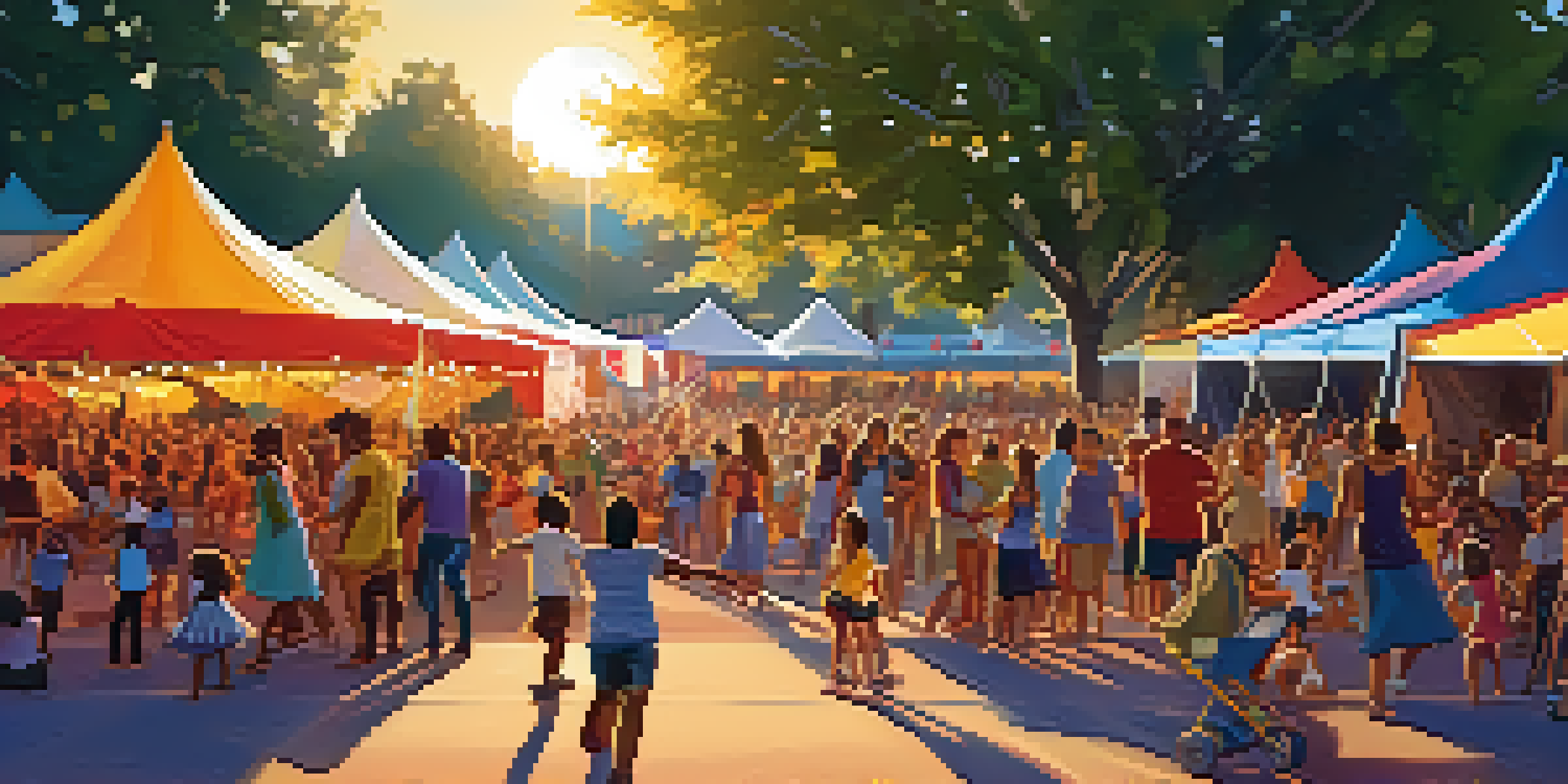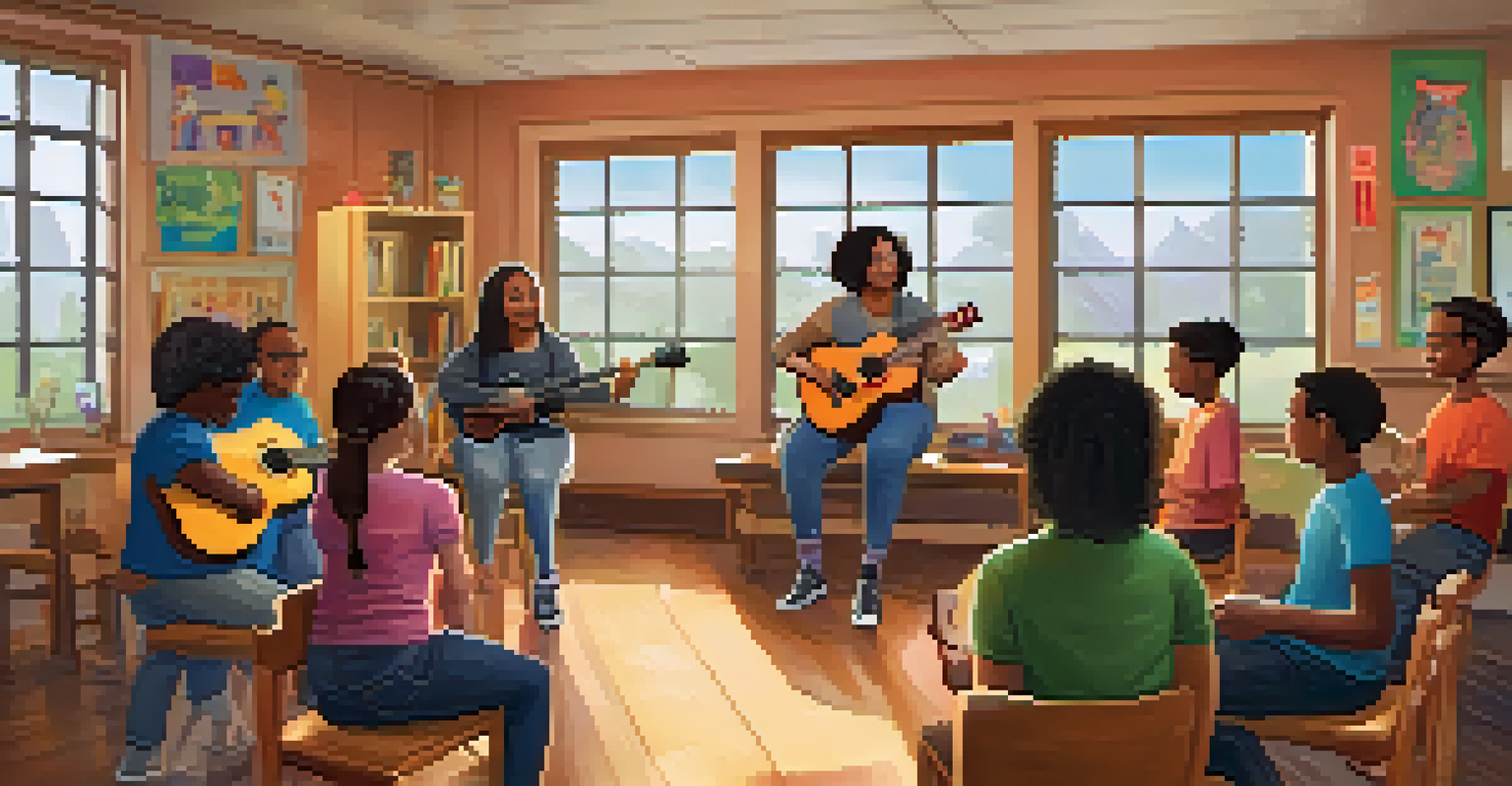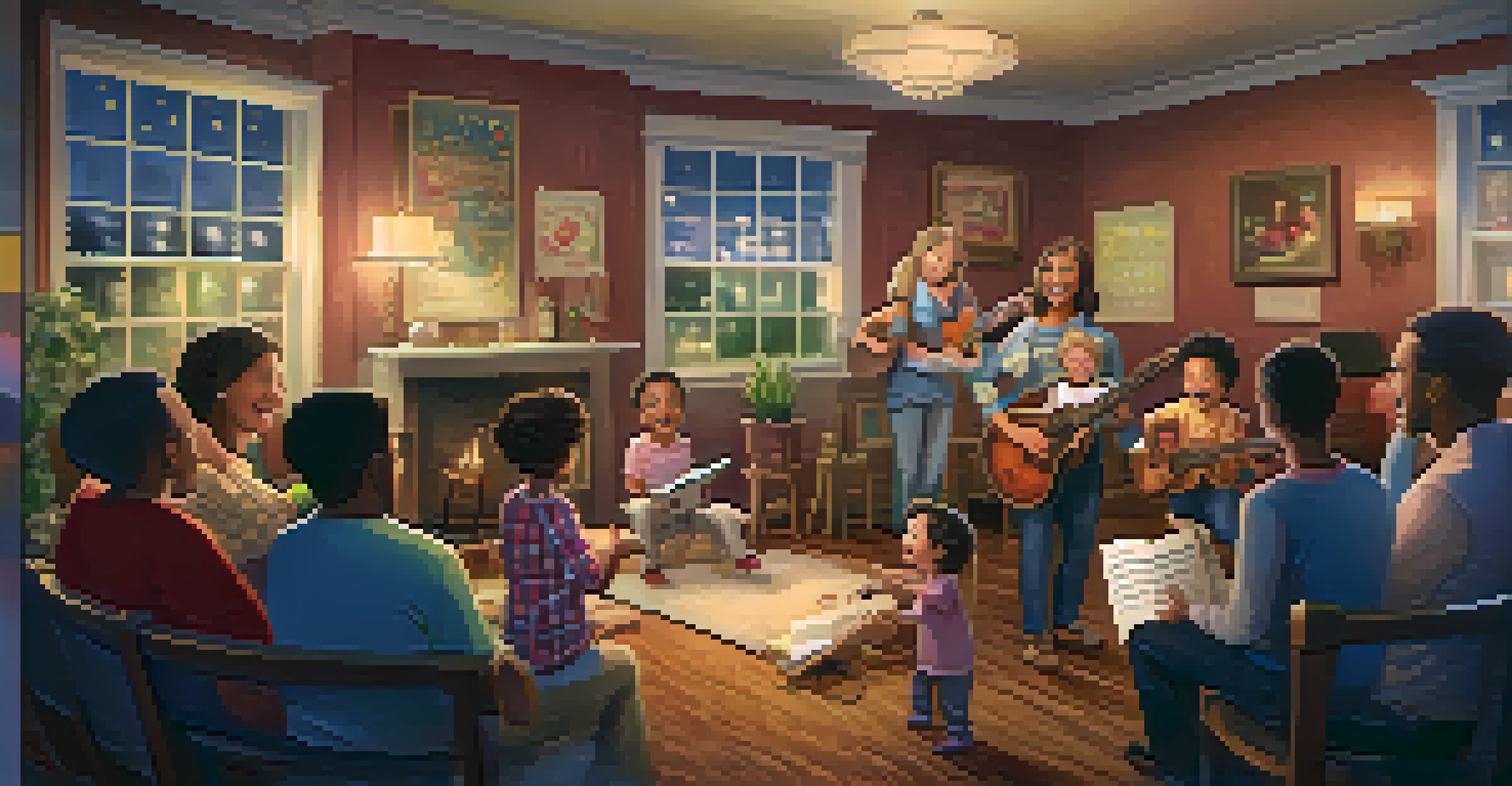How Music Educators Foster Community Involvement

The Role of Music Educators in Community Building
Music educators play a vital role in fostering community connections. They often serve as the bridge between schools and local organizations, facilitating events that bring people together. By organizing concerts, workshops, and festivals, they create opportunities for collaboration and engagement within the community.
Music can change the world because it can change people.
These events not only showcase students' talents but also invite parents and local residents to participate. This inclusivity helps cultivate a sense of belonging, making community members feel valued and connected. Additionally, music educators often encourage students to explore their cultural backgrounds through music, which enriches the community's diversity.
Through their passion for music, educators instill a sense of pride in their communities. They highlight local talent and create spaces where everyone, regardless of age or background, can come together to celebrate creativity and artistry. This connection ultimately strengthens the fabric of the community.
Building Partnerships with Local Organizations
One effective way music educators foster community involvement is by partnering with local organizations. Collaborations with non-profits, arts councils, and even local businesses can lead to exciting initiatives. These partnerships often provide resources, funding, and venues for community music events.

For example, a music educator might work with a local arts council to host a community concert series. This not only showcases student performances but also engages local musicians, creating a vibrant cultural experience. Such initiatives encourage community members to explore music in a supportive and collaborative environment.
Music Educators Foster Community Bonds
Through events and collaborations, music educators create opportunities for community members to connect and engage.
These partnerships also extend learning opportunities for students. When they see their educators collaborating with local figures, it inspires them to become active participants in their community. This sense of involvement can be incredibly motivating and empowering for young musicians.
Creating Inclusive Music Programs for All Ages
Music educators understand the importance of inclusivity in their programs. By offering classes and workshops for all age groups, they invite everyone to participate, regardless of skill level. This approach not only nurtures talent but also fosters a welcoming environment where community members can connect through music.
Education is the most powerful weapon which you can use to change the world.
For instance, a music educator might create a family music night where parents and children can learn together. Such events promote bonding and encourage families to share their love for music. By making music accessible, educators help break down barriers and invite diverse participation.
Inclusivity in music education also allows for the exploration of various musical styles and traditions. When community members share their cultural heritage through music, it enriches the collective experience and broadens everyone’s understanding of different perspectives.
Organizing Community Events that Celebrate Music
Organizing community events is a powerful way for music educators to engage local residents. Annual events like music festivals, talent shows, and open mic nights create platforms for expression and showcase the community's creativity. These gatherings not only entertain but also promote collaboration among local musicians and artists.
Such events often draw large crowds, fostering a sense of pride and ownership within the community. When people come together to celebrate music, they build connections and create lasting memories. This atmosphere of joy and unity can strengthen community bonds.
Inclusive Programs for All Ages
By offering music education for various age groups, educators promote participation and cultural exploration within the community.
Moreover, these events can raise awareness about local issues, encouraging dialogue and collaboration. Music educators can use their platforms to address topics like social justice or cultural appreciation, making music a vehicle for change and understanding.
Engaging Families Through Music Education
Family engagement is crucial in music education, and educators often find creative ways to involve families. By inviting parents to participate in classes or attend performances, they can strengthen the bond between home and school. This involvement not only enhances student learning but also enriches the community itself.
For instance, workshops that encourage family participation allow parents to learn alongside their children. This not only fosters a love for music but also creates shared experiences that families can cherish. When families actively engage in music education, it reinforces the importance of the arts in their lives.
Additionally, celebrating family achievements in music can motivate students to pursue their passion. Recognizing the efforts of families and their contributions to music education creates a supportive atmosphere that encourages everyone to thrive together.
Utilizing Technology to Connect with the Community
In today's digital world, technology plays a significant role in community engagement. Music educators can leverage social media, online platforms, and virtual events to reach a broader audience. This digital presence allows them to share resources, promote events, and connect with community members beyond traditional boundaries.
For example, hosting virtual concerts or livestreaming performances can engage those who may not be able to attend in person. This inclusivity expands the audience and invites community members from various backgrounds to participate. It creates a sense of belonging, even in a virtual space.
Technology Enhances Community Engagement
Utilizing digital platforms, music educators can reach wider audiences and facilitate connections among community members.
Moreover, technology can facilitate collaboration among students and community members. Online platforms can host workshops or jam sessions, encouraging creative expression and connectivity. This innovative approach to music education enhances the community's vibrancy and fosters ongoing engagement.
Promoting Lifelong Learning through Music
Music educators instill a love for lifelong learning in their students and the community. By offering advanced classes, workshops, and masterclasses, they encourage individuals to continue exploring their musical interests. This commitment to education fosters a culture of curiosity and growth within the community.
When community members see the value of continuous learning, it inspires them to pursue their passions beyond the classroom. Whether it’s picking up an instrument later in life or joining a community choir, these opportunities enrich their lives. Music becomes a lifelong companion, enhancing their well-being and creativity.

Furthermore, lifelong learning through music can strengthen community ties. When individuals share their experiences and knowledge, it promotes collaboration and mentorship, creating a supportive network. This cycle of learning and sharing ultimately benefits everyone involved.